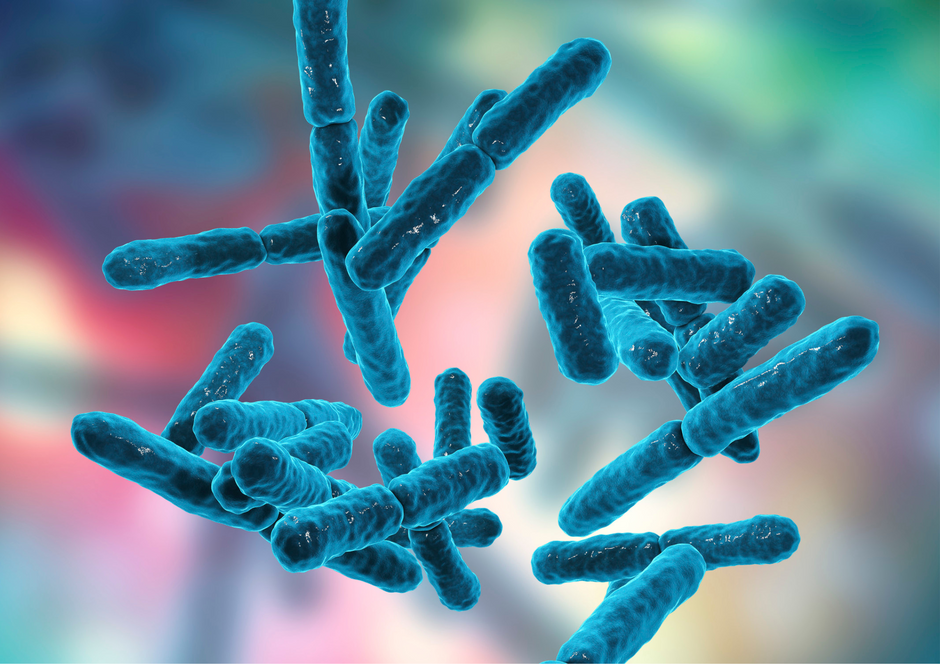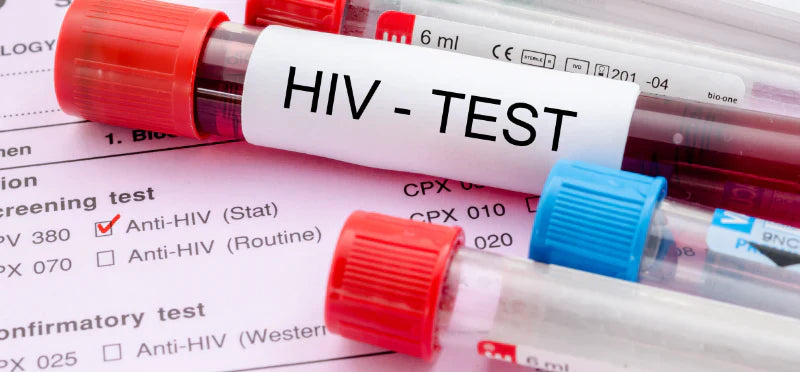HIV vs AIDS: Are They The Same?
HIV (human immunodeficiency virus) is a virus that attacks the body’s immune system. The virus mainly targets our body’s CD4 (T-helper) cells, greatly reducing our body’s ability to fight against infection. HIV spreads through contact with certain bodily fluids of an infected person with a detectable viral loadーsuch as during unprotected sex, ーor through the sharing of injection drug equipment.
Advanced HIV infection is the most serious stage of HIV. It occurs when the virus has weakened the immune system so much that the body can no longer protect itself against other infections and certain types of cancer. A person is diagnosed with advanced HIV infection when their CD4 cell count falls below 200 cells per cubic millimeter of blood. While the advanced stage of HIV cannot be passed from one person to another, HIV itself can still be transmitted. That’s why it’s important to understand how HIV spreads, how it can be treated, and what steps we can take to prevent it. Let’s dive in!
What Happens if HIV is not Treated?
HIV weakens the immune system over time, making the body more vulnerable to infections and diseases. If left untreated, it can lead to serious issues:
Opportunistic infections and complications
Opportunistic infections are serious infections that thrive in weakened immune systems ー such as severe pneumonia, parasitic brain infections (eg. toxoplasma), and severe bloodstream infections, amongst others. These infections occur more often or at higher severity in people with weakened immune systems.
Medical Advancement & Treatment
“I have been diagnosed with HIV – what does this mean for my future?” With significant advancements in modern medicine, HIV has transformed from a life-threatening illness to a manageable chronic condition. People living with HIV who receive timely medical care and proper follow-up can maintain a good quality of life and live long, healthy lives.
HIV is treated with a combination of antiretroviral medications, that should be taken daily (in most cases) and lifelong - this is referred to as combination antiretroviral therapy. While these medicines do not cure HIV, they work by suppressing viral replication and help to keep the viral count in patients’ bodies low. With the suppression of HIV, patients’ immune system can then be restored. The suppression of HIV viral load to undetectable levels not only allows patients to lead normal lives, but it also prevents the transmission of the virus to their sexual partners.
Treatment plans in the past required patients to take multiple pills daily, often with severe side effects. However, thanks to advancements in drug development, the number of pills has decreased and patients now tolerate them better, resulting in fewer and less severe side effects.

Undetectable = Untransmittable (U=U)
When people living with HIV consistently take their antiretroviral therapy (ART), the amount of virus in their body can become so low that standard tests cannot detect it. Research has conclusively shown that at this 'undetectable' level, HIV cannot be transmitted to sexual partners. This scientific finding is captured in the simple yet powerful message ‘Undetectable = Untransmittable (U=U)’ – when a person living with HIV who is on treatment and maintains an undetectable viral load, they have zero risk of transmitting HIV to their sexual partners (Undetectable = Untransmittable, 2024).
HIV and Workplace
In Singapore, HIV test results are strictly confidential, like all medical information, and cannot be shared without the individual's consent. People living with HIV can work and participate fully in daily activities just like anyone else, and they are not required to disclose their HIV status in their workplace.
Only healthcare workers who perform exposure-prone procedures would require a pre-employment screening for HIV as a safeguard to prevent risk of transmission.

HIV and Relationships
Navigating relationships with HIV can be tricky, challenging, and even overwhelming. It requires open communication, mutual trust, and responsible health practices. Disclosing one’s status to a partner can be difficult, but honesty is crucial ー choosing the right time and setting can help foster understanding and support. Practicing safe sex, such as using condoms and staying on antiretroviral therapy (ART), helps reduce the risk of transmission, while Pre-Exposure Prophylaxis (PrEP) provides additional protection for HIV-negative partners.
Getting tested for HIV is an important step in any relationship, even when you feel healthy and trust your partner completely. It's simply an act of care and responsibility towards each other's health.
HIV testing is now more accessible than ever with convenient self-testing options available.
Currently in Singapore, HIV self-test kits have been available at selected retail pharmacies since end-January 2025. Here at Glovida-Rx, we have HIV self-test kits available for purchase as well!

OraQuick HIV Self-Test Kit: Conducted with an oral swab, no blood is required. Quick and discreet with an accuracy of 99%, results are available at home in just 20 minutes.
To learn more about safe practices, preventive methods, and home-testing, head over to our Guide on Self-Testing and Immediate Actions After Exposure to HIV.
For those considering parenthood, medical advancements now allow HIV-positive individuals to have children safely. With proper medical guidance, including ART adherence, sperm washing, and assisted reproductive techniques, the risk of transmission to a partner or baby is greatly minimized. ART should be taken consistently throughout the whole pregnancy, and regular checkups to assess both viral load and CD4 cell count are important (Preventing Perinatal Transmission of HIV, n.d.).
Changing Perceptions of HIV
In Singapore, perceptions of HIV have evolved significantly, though stigma still persists. Organizations like Action for AIDS Singapore, along with campaigns such as World AIDS Day, have played a crucial role in challenging misconceptions and building public awareness. Through education and advocacy, our society has become more informed and understanding. However, continued efforts are needed to ensure that individuals living with HIV are treated with dignity and equality.

Living Well with HIV
Aside from timely and consistent medical treatment, it is also very important to maintain a healthy lifestyle ー balanced diet, exercise regularly, manage other health conditions, etc. ー in order to strengthen one’s immune system.
Emotional and mental well-being shouldn’t take a back seat either ー fear, anxiety, depression, or stigma are all common emotions felt after a positive diagnosis. Engaging with a therapist or counselor can provide emotional support, help individuals process their feelings, and manage stress. Group therapy or support groups, especially those for people living with HIV, can also provide a sense of community and shared experience. Although attitudes are improving, stigma can still affect those living with HIV. Finding supportive, non-judgmental communities and organizations helps people build confidence and feel more empowered. Advocacy and education are also crucial to help combat stigma at a broader societal level.
In Singapore, several resources and organizations offer support for people living with HIV, such as:
- Action for AIDS (AfA): Provides support programs, counseling, and information on living with HIV.
- Peer Support Groups: Connecting with others who are living with HIV can offer emotional comfort and a sense of belonging.
- Mental Health Support: Access to professional counseling and mental health services helps individuals manage the emotional and psychological aspects of living with HIV.
Additionally, family and friends who are informed and supportive can be instrumental in providing emotional support and understanding.
Living well with HIV is entirely possible with the right combination of medical treatment, lifestyle management, and supportive networks. By adhering to ART, prioritizing mental and physical health, and seeking help when needed, individuals living with HIV can maintain a fulfilling life, contribute to their communities, and build strong, healthy relationships. With advances in treatment and support systems, people living with HIV can thrive and live long, productive lives.
References
- Human immunodeficiency virus (HIV). (n.d.). Communicable Diseases Agency. https://www.cda.gov.sg/public/diseases/hiv#9783c512f5c00d76519c2bd92d0d66f
- Undetectable = untransmittable. (2024, August 19). Global HIV and TB. https://www.cdc.gov/global-hiv-tb/php/our-approach/undetectable-untransmittable.html
- Preventing perinatal transmission of HIV. (n.d.). HIV.gov. https://www.hiv.gov/hiv-basics/hiv-prevention/reducing-mother-to-child-risk/preventing-mother-to-child-transmission-of-hiv#:~:text=Yes%2C%20however%2C%20treatment%20with%20a,baby%20and%20protect%20your%20health.
 for quicker access to medication purchases.
for quicker access to medication purchases.








